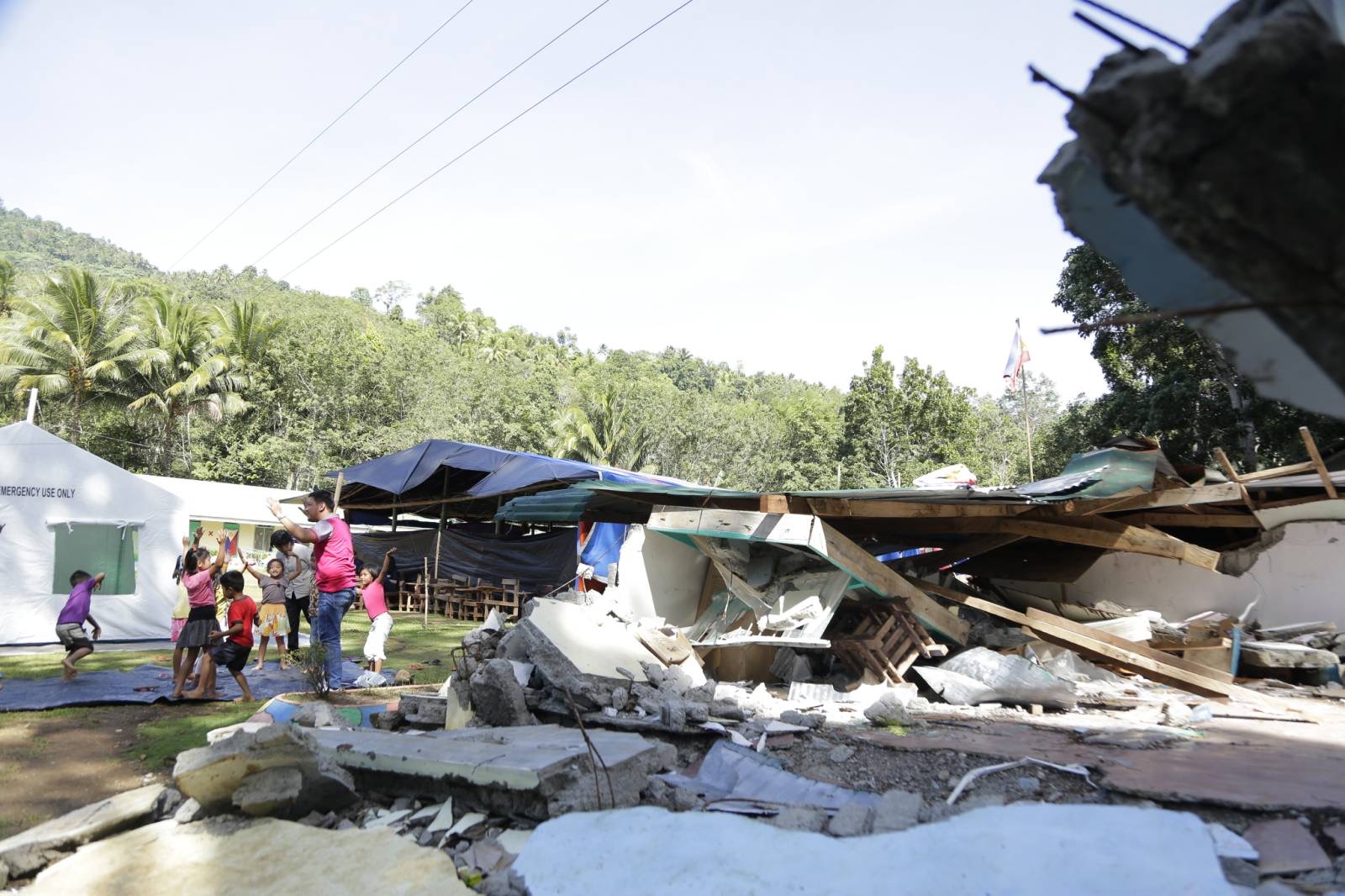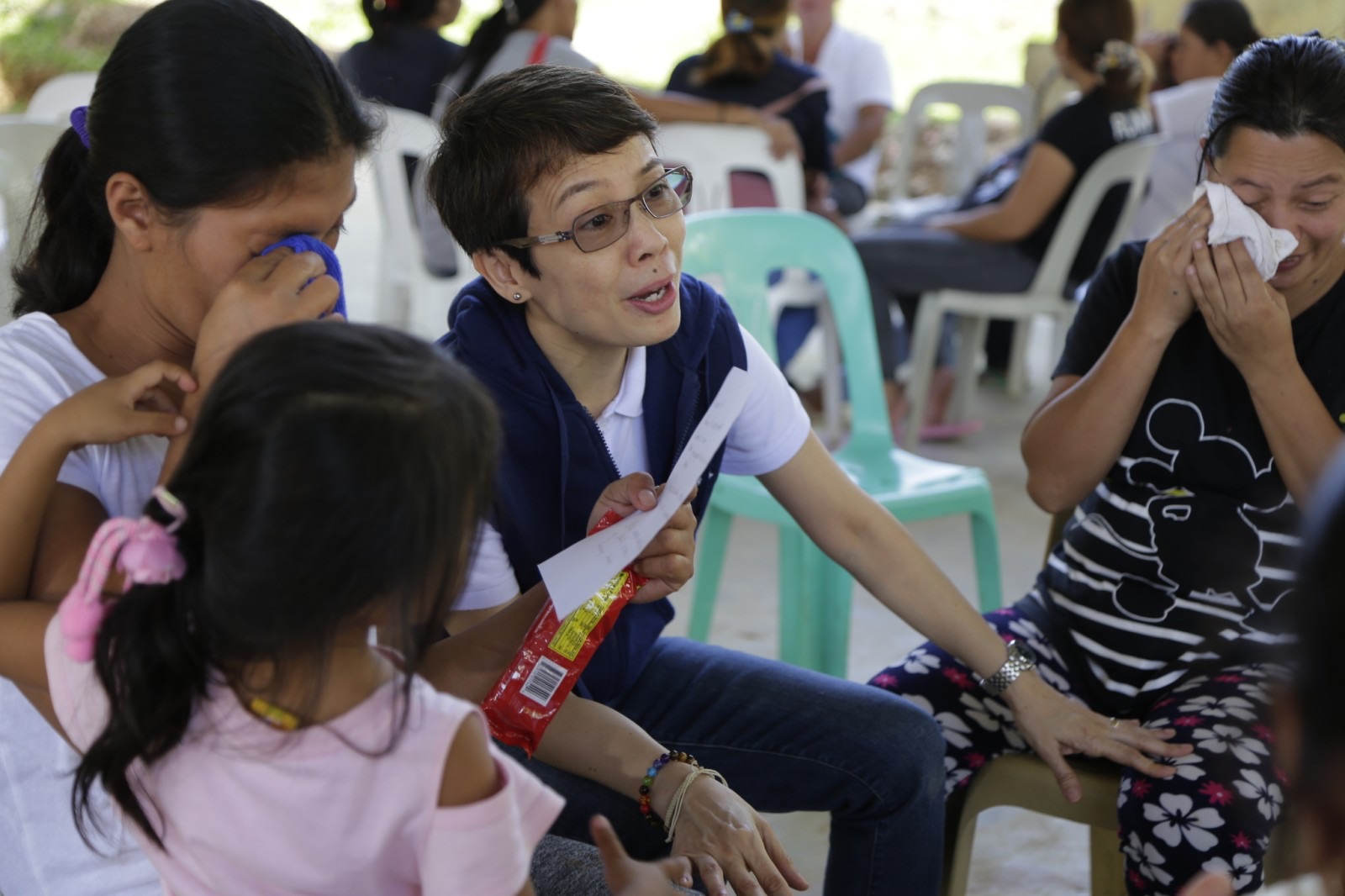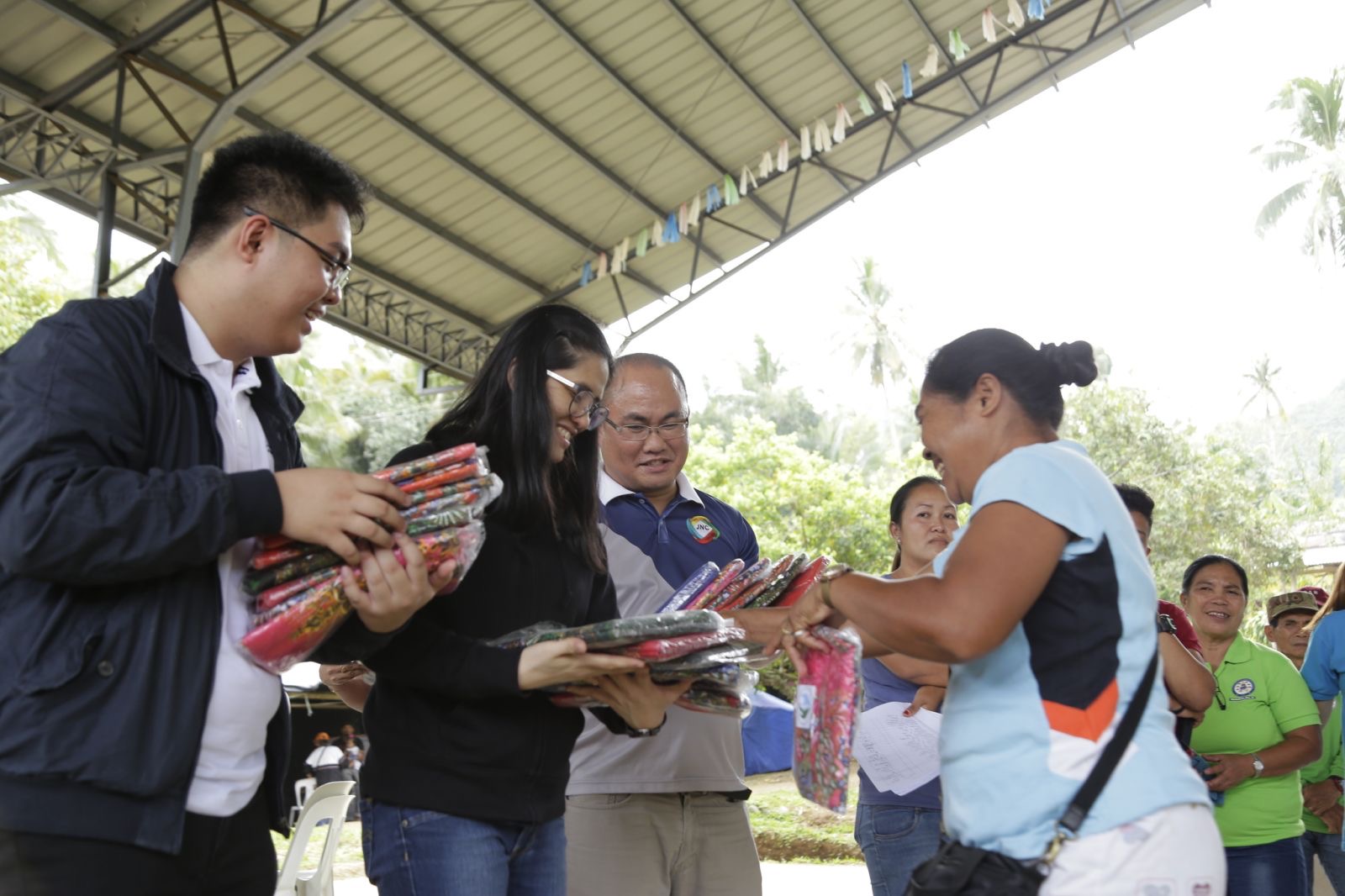Brgy. Robrero, Makilala, North Cotabato, (December 6, 2019) – Traumatized by a magnitude 6.6 earthquake and a series of strong aftershocks that shook the province of North Cotabato to its core last October, residents of this laidback farming community are trying their best to cope with cold nights, cramped evacuation sites, water-borne diseases, and the concern of where to get their next meal.
To help address the immediate needs of earthquake victims particularly in the municipalities of Makilala, Tulunan, and M’lang, the Joint Normalization Committee (JNC) under the Office of the Presidential Adviser on the Peace Process (OPAPP) spearheaded relief operations and psychosocial interventions in the area.
“Nagpapasalamat po kami sa OPAPP at sa lahat po ng tumulong sa amin. Simple man po ito pero napakalaking tulong na po nito sa amin. Hindi po ako umiyak nung bumagsak yung bahay ko. Ang iniyakan ko po noong nakatanggap na po ako ng relief goods,” shared a teary-eyed Mary Jane Lintang, a barangay health worker and a volunteer of the local Disaster Risk Reduction and Management Center (DRRMC).
“Kasi po noon kami ang nagbibigay ng relief goods para sa mga nangyayari sa ibang lugar tulad ng [bagyong] Yolanda. Nang kami na ang nakatanggap, ganoon pala ang pakiramdam ng mga nabibigyan rin namin ng tulong noon. Ang sarap sa pakiramdam na ikaw na ang natutulungan,” Mary Jane said.
(We are thankful to OPAPP and to all those who helped us. These may be simple but these are a huge help to us. I did not weep when our house was destroyed. I wept when we started receiving relief goods, because we used to be the ones who gave relief goods to other areas like the Yolanda (victims). It felt really good to receive help.)
Dir. Wendell P. Orbeso of JNC secretariat and Dir. Farrah Grace Naparan of JND led the distribution of relief assistance to 1,500 evacuees in partnership with the municipal government of North Cotabato, Department of Social Welfare and Development, and Department of Health.
On the other hand, the psychosocial support services were conducted by OPAPP in collaboration with the Department of Education – Region XII and Catholic Relief Services.
Multi-stakeholder effort
The earthquakes and succeeding aftershocks had a major impact on the province’s student population. Classes were suspended for fear the school buildings might collapse. Despite this scenario, many public schools in the area such as the Robero Elementary School were converted into temporary evacuation sites.
Classes resumed for elementary students only a week ago after the evacuees were relocated to a nearby site, and as parents helped to construct makeshift classrooms which their children could use.
According to Agney C. Taruc, education program supervisor of DepEd RO XII, the academe values the contribution of all stakeholders as this will ensure that children are given the attention they need when traumatizing events happen.
Taruc noted that there were no reports of student casualties in the region following the quake, which he attributed to the DepEd’s regular conduct of earthquake drills in schools.
OPAPP partnered with DepEd Region XII to provide psychosocial support for students who were psychologically affected by the tremors. The intervention was led by Taruc and secondary school teachers from the Cotabato City National High School – Main Campus.
“It is important to provide them (children) with psychosocial intervention because of the trauma they experienced during the series of earthquakes. And that trauma, if not given attention, might cause mental and psychological problem when the child grows up,” Taruc explained.
“So our concern right now as academe, as education department, we see to it that all children be provided with psychosocial services. Prior to the resumption of classes, we also require teachers to conduct psychosocial interventions,” he said.
“With the support of the community and our external stakeholders, children will feel that we care for their future, we care for their education. Na hindi guguho ang mga pangarap nila gaya ng mga buildings na nasira (that their hopes would not be ruined like the buildings which collapsed),” Taruc added.
Aside from psychosocial interventions, the DepEd also established “learning spaces” for students who could not return to their classrooms.

Psychosocial interventions
Sixty-two year old “Nanay” Nancy Espinosa broke down in tears while sharing her traumatizing experiences with her fellow women participants during the psychosocial support sessions spearheaded by OPAPP in partnership with the Catholic Relief Services – Davao.
“Nagpapasalamat po kami sa suporta tulad po nito. Kapag may pumupunta po dito para sa amin, nawawala sa isipan namin kahit sandali yung mga problema namin,” Nanay Nancy shared.
“Nakakatulong po talaga ang masabi namin ang mga nararamdaman namin kasi tulad ko, na-phobia po talaga ako. Nag-crack na po yung sahig ng bahay namin. Wala na po kaming babalikan,” she added.
(We are thankful for support such as this. When we have visitors, we forget our problems even just for a while. It really helps for those who have been traumatized just like me to voice out our emotions. Our house’s floor is now cracked, we really have nowhere to go back to.)
Coming from hinterland areas and having no choice but to relocate in lowland areas, heads of families often experience high stress levels, especially when they need to be alert round the clock in case another quake happens.
Alexandra Medina, a member of the peace building team of CRS, shared the importance of providing psychosocial support especially to vulnerable sectors such as women and children.
“Psychosocial is really important because not many people pay attention to it because it’s invisible, effects are not usually seen. It can create trauma, it can affect the way we relate with others. And of course it’s part of our whole being and it still can have a deep effect on the person,” Medina said.
“It can also have repercussions on the way we relate with others, with our family, and its part of being a peaceful person, peace within the self, we cannot give it when we don’t have it, so it’s part of finding that peace within yourself,” she added.

Apart from providing psychosocial support to the quake victims, CRS also regularly provides humanitarian emergency relief as well as programs that focus on peace governance, peace building, community and youth engagements, and social enterprises.
This is not the first time OPAPP has given assistance to victims of calamities and armed violence. Through its Socal Healing and Peace (SHAPE) Program, the agency, in partnership with other stakeholders, is helping victims of the 2017 Marawi siege to rebuild their lives through various peacebuilding and livelihood initiatives.###












